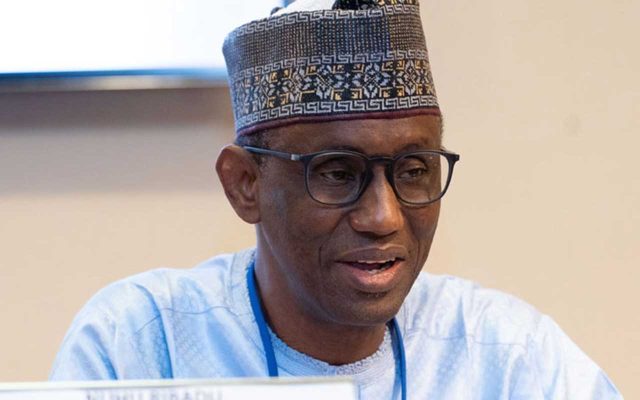The National Counter Terrorism Centre in Abuja on Monday hosted a high-level Policy Dialogue and Training on Victims’ Assistance and Violent Extremism Prevention, bringing together stakeholders from across Nigeria and Colombia under the South-South Cooperation framework.
Speaking on behalf of the National Security Adviser, Mallam Nuhu Ribadu, the National Coordinator, Major General Adamu Garba Laka, welcomed delegates to what was described as a crucial step in strengthening Nigeria’s non-kinetic response to violent extremism.
The event, organised in partnership with Colombia’s Unit for the Attention and Integral Reparation of Victims, is aimed at enhancing the capacities of members of the Steering Committee for Nigeria’s Policy Framework and National Action Plan for Preventing and Countering Violent Extremism (PCVE).
The training also brings together participants from government ministries, security agencies, civil society organisations, and development partners.
“This dialogue is not only about learning best practices but about recognising the human face of violent extremism.
“The trauma, displacement, and suffering endured by victims must be placed at the centre of our national response”, the National Coordinator said.
Over the years, Nigeria has faced a multitude of security threats, including terrorism, banditry, kidnapping, ethno-religious conflicts, and farmer-herder clashes, which have strained the country’s unity, hindered development, and left thousands of victims in need of care, justice, and reintegration.
The event spotlighted Colombia’s peacebuilding experience as a valuable case study for Nigeria.
Having dealt with decades of internal conflict, Colombia has developed globally recognised models for victim rehabilitation, post-conflict reconstruction, and social reintegration. Nigerian stakeholders hope to draw from this experience to strengthen local initiatives.
“We must understand that military operations alone are not sufficient. Long-term peace and stability depend on non-kinetic interventions, healing, inclusion, and community resilience,” the Coordinator stressed.
Central to the dialogue was Nigeria’s commitment to a “whole-of-government and whole-of-society” approach.
This model encourages coordination across justice, health, education, and social sectors, alongside civil society, traditional rulers, faith leaders, and international partners.
The forum provided an avenue to evaluate current strategies, identify policy gaps, and craft more inclusive frameworks for preventing violent extremism and supporting victims’ rights and recovery. Participants were encouraged to offer practical solutions to improve ongoing efforts and build sustainable programmes.
The National Coordinator commended the organisers and stakeholders for their dedication and reaffirmed Nigeria’s commitment to justice, peace, and security. Special appreciation was extended to the Colombian delegation for their solidarity and support.
“We look forward to deepening this partnership and fostering a more peaceful and resilient Nigeria,” the Coordinator noted.
The dialogue is expected to lead to actionable recommendations that will inform future policy development and interventions in Nigeria’s counter-extremism efforts.
Head of the Colombia team, Gracia Sebastian, noted that the two countries need collaboration to succeed.







